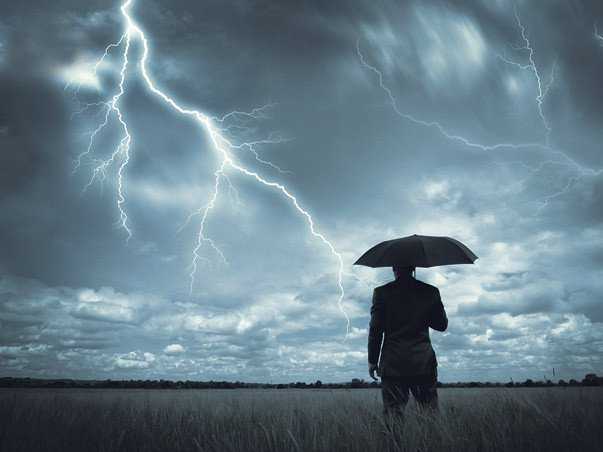What Story Hooks Are All About
If you’ve been writing fiction awhile, you’ve probably heard the term “hook.” What is a hook all about anyway?
It’s a line that snags your reader and pulls them into the story. Often someone flipping through your book or looking at the first page online at Amazon.com will just read the first few lines.
Having a great opening line to your story is important. Some readers (including agents and publishers) won’t read more than the first paragraph of a novel if the “hook” isn’t catching them.
In a workshop I took years ago with literary agent Donald Maass, we all shared first lines and got feedback on the hook. It turned out a great hook is harder than it looks. Maass noted that sometime the hook will entail the whole first paragraph, with a strong, engaging line acting like an exclamation mark to drive home the opening thought.
That’s why it’s a good thing to spend time thinking about the opening to your story and honing that hook.
This, of course, presumes 1) you have a riveting premise and plot, 2) you are starting your story in the right place (or the best place, you might say), and 3) you’ve spent time developing a strong, unique voice for your POV character (who usually should be the protagonist in the opening of the story, if it’s not a brief prologue that is setting the stage outside of the main drama to unfold).
A story hook, generally, has to do with the premise. It’s the twist inherent in the premise, the surprise that will pop out in the climax. Mysteries (good ones) will always have a hook in the premise. It’s the bad guy you didn’t notice throughout the story that committed the murder, but seems so obvious when you finally get to the end of the book.
I believe that the more amazing, shocking, astounding, unexpected, and clever your story hook is, the better chance you have of success. This is really what the term “high concept” is all about. The overall premise is so intriguing, readers will pick up your book because they just have to know how this all will play out.
But if you can add a twist to your great premise (like the therapist treating the troubled boy who says, “I see dead people” that is dead and doesn’t know it until the climax of the movie), you may have a winner.
But, even with a terrific story hook, you still need to think about those scene hooks. I would encourage you to go beyond trying to write a brilliant first line or paragraph to your novel and make every first line of every scene a great hook.
Hook, Line, and Sinker
That first line should be a doozy and one that really makes an impression. However, don’t get so hung up on writing that first paragraph that you don’t move forward. You will probably come back and rewrite it, unless you came up with an opening line ages ago and now you’re finally putting that masterpiece in place.
I always revisit my first chapter (many times) as I’m writing a novel. And especially once I’m done. Sometimes the best opening line is found in your last scene or climax. Sometimes your theme, now clearly executed in your story, will inspire a better opening hook.
Sometimes as we’re writing our novel a great first line will come to us. Other times we’ll find a great first line somewhere on page three or four. When I went back in after completing my latest novel to chop away at my boring, extra-long first chapter (and this is usually the only chapter I do this with), I found a catchy, compelling first line on page two. I pretty much chopped out everything before it and started there. But, in the end, you will want a terrific first line.
A Couple of Great First Lines
That line should be intriguing, and if it doesn’t specifically name your protagonist, it should have a feel of being in her POV and something that’s important to her. I keep thinking of Harry Dolan’s first novel Bad Things Happen (that won one of the Amazon Breakthrough Novel Award contests). This is a suspense novel with intrigue and murder in a stylized voice that is refreshing and wonderful. Here’s the first line: “The shovel has to meet certain requirements.”
As you can see, it doesn’t introduce the protagonist, but it arouses curiosity. Why in the world is a novel opening with the discussion of a shovel? What will it be used for? The next lines in the first paragraph answer that question . . . to a point (pardon another pun): “A pointed blade. A short handle to make it maneuverable in a small space. He finds what he needs in the gardening section of a vast department store.”
Of course, the reader has read the blurb on the back cover so knows what the book is about and what the genre is. This type of opening is perfect for Dolan’s audience—mystery-suspense readers looking for something a bit noir or macabre. I think this is a great hook because it is full of microtension—meaning it raises your curiosity and gets you to wonder about this character and why he needs a shovel. Obviously the shovel must be important, and we suspect it will be used for something not related to gardening. And off we go, reading on.
Another great first line comes from The Lovely Bones by Alice Sebold. This story is told in first person, so it automatically introduces the protagonist through her voice. “My name was Salmon, like the fish; first name, Susie.” What the reader catches right away is the past tense: My name was Salmon. What? Did she change her name? You find out in the next line: “I was fourteen when I was murdered on December 6, 1973.” Right away we’re intrigued, as we realize this story is being told by a girl who is dead—and not just dead but murdered.
How about Richard Matheson’s great first line in I am Legend: “On those cloudy days, Robert Neville was never sure when sunset came, and sometimes they were in the streets before he could get back.” Here’s a perfect example of what writers should have in that first paragraph (or sentence): an introduction of the protagonist, showing something of a conflict or inciting incident, and the character’s core need.
Play around with your first line, and if you’re brave, post it here and see what others think. If you have a few you are toying with, throw them out here for comment. Maybe that will help you hone it so it’s just the right opening line for your book. And feel free to share some more great first lines here, for the record!
UPCOMING: I’m doing a second workshop on crafting a terrific premise on February 21, 2-4 p.m. Pacific Time (it will be recorded, so you can watch it later if you can’t attend). Veteran literary agent Steve Laube will listen to your pitches and give some feedback and advice. Space is limited, so be sure to enroll ASAP. And bring your premise statement to share, and get tips on how to improve it!













Helpful as usual!